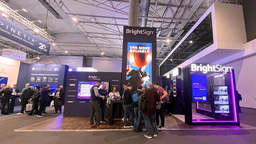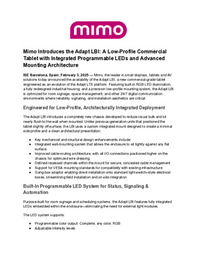AV-IT Convergence and the Future of the AV Industry
In the past twenty years I have witnessed first hand the merger of AV and IT. We have been talking about it and witnessing it in real time for decades now.
Let's face it, manufactures have innovated products that are cheaper and easier to set up for the purpose of working directly with end users. Now, typical meeting rooms can be set up with the gear that comes in the box, no programming required. Many products are smaller and more light weight and do not need professional integrators to install. Other than specialty spaces, where does this leave integrators? Let's face it. AV Integration is not about system design as much as it used to be. So, what is it becoming, other than more specialized?
It has felt like an adapt or die situation for years now. But are we adapting affectively?
These are the kind of questions I have been asking myself more lately.
- Why do clients want to work with you?
- What practical value do you add beyond AV Integration?
- How do you make your client's job easier?
- Are you concerned with client KPI’s and making the client look good?
- Do you consider other factors in your AV Integration like acoustics and lighting?
What does the future hold for the AV industry?
I would love to hear about the questions you are asking yourself. What keeps you awake at night?






Please sign in or register for FREE
If you are a registered user on AVIXA Xchange, please sign in
Tavius, you’ve nailed the existential challenge: The floor for 'basic AV' has risen (thanks to plug-and-play tech), but so has the ceiling for what’s possible and that’s where integrators must stake their claim. Having lived this convergence for 20+ years, I believe the answer isn’t just specialization, but redefining what AV integration even means.
Thanks for your comment—I'd love to hear more about what "redefining AV integration" means to you.
For me, a few key trends are shaping that redefinition. Some have been evolving for a while, but the question is: where will we see the most meaningful adoption and integration in the near future? It feels like the industry wheels keep turning the same way, often without significant buy-in from end users. Still, these shifts stand out:
A stronger focus on user-first experiences, rather than leading with hardware specs and functionality.
A move toward service-based business models, leveraging OpEx over CapEx.
Increased use of cloud infrastructure, data analytics, and AI—something we’re starting to see more manufacturers embrace.
One challenge, I think, is that AV integrators are still largely viewed by the architecture and construction industries as specialty low-voltage subcontractors. That perception limits our ability to fully participate in the design-build process. While partnerships do happen—GCs, electricians, and low-voltage firms collaborating on design-bid-build projects—it’s often too late in the game to drive meaningful technology decisions.
Breaking in as a true technology design-build partner seems like a viable path forward. I've had some success with that model myself. But realistically, most of the investment and project flow still favors the traditional design-bid-build framework.
What are your thoughts?